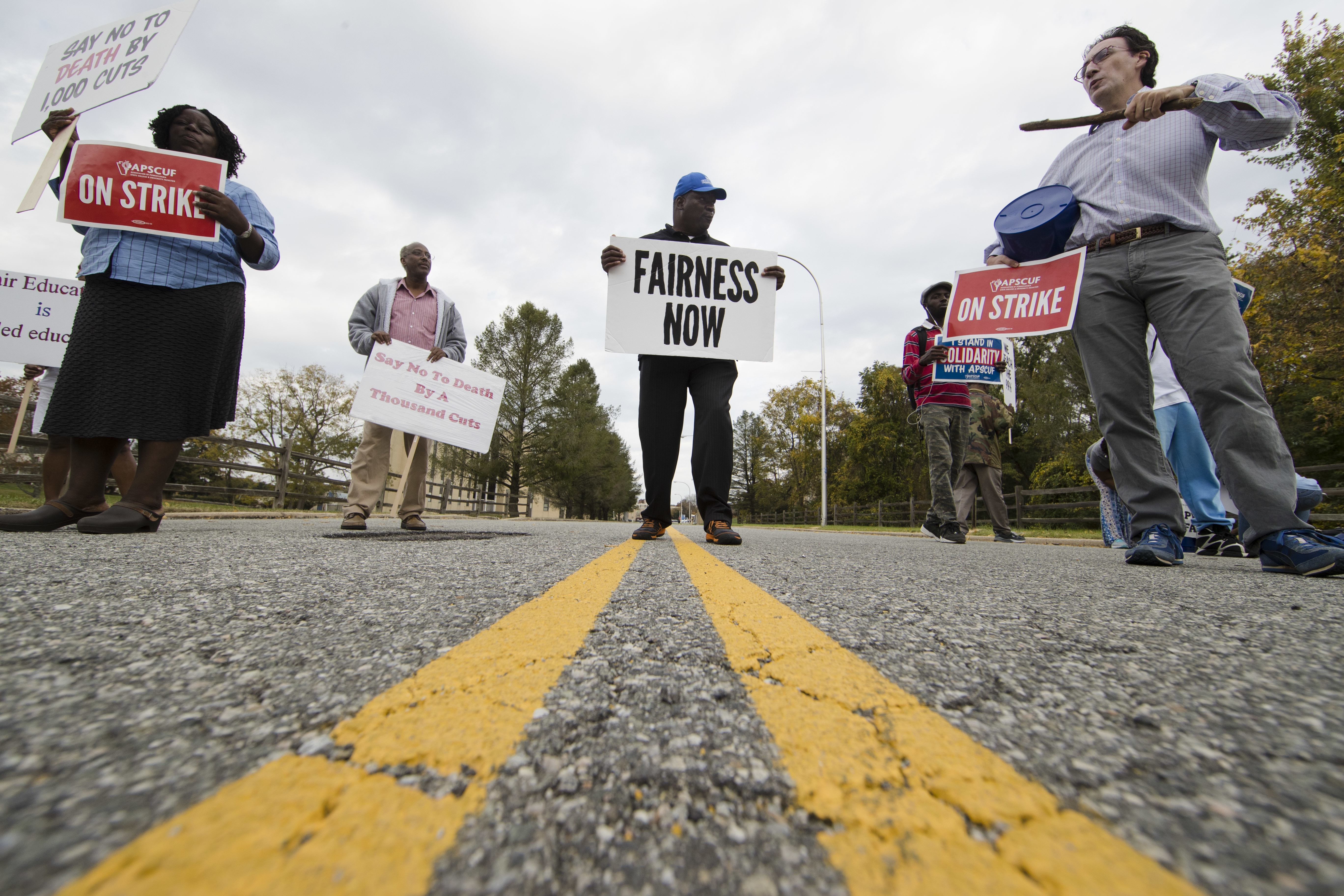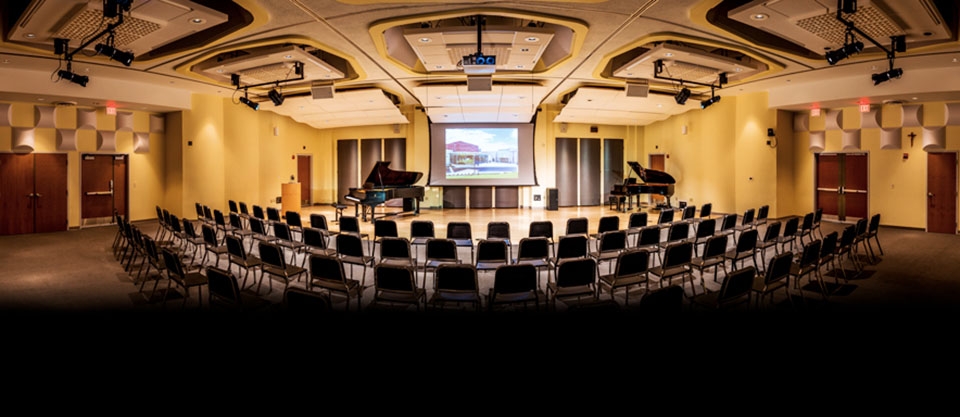
Faculty and their supporters picket at Cheyney University in Cheyney, Pa., Thursday, Oct. 20, 2016. Faculty at Pennsylvania state universities continue their strike that started Wednesday morning, disrupting classes midsemester after contract negotiations hit an impasse.

Faculty and their supporters picket at Cheyney University in Cheyney, Pa., Thursday, Oct. 20, 2016. Faculty at Pennsylvania state universities continue their strike that started Wednesday morning, disrupting classes midsemester after contract negotiations hit an impasse.
Raymond Arke | Asst. News Editor
Last week, a strike of college professors paralyzed the 14 state-run colleges and universities in Pennsylvania. When the faculty of the Pennsylvania State System of Education walked off the job on Oct. 19, 100,000 students were left in the middle of a contract dispute. The strike lasted three days, until Oct. 21 when a deal with the state was reached, ending the first strike in the faculty union’s 34 year history.
The Association of Pennsylvania State College and University Faculties (APSCUF) is the union representing faculty members at Pennsylvania’s 14 public colleges and universities such as Slippery Rock, Shippensburg, Indiana University of Pennsylvania and West Chester. The strike started after negotiations between the state and the union for a new contract broke down, the website for APSCUF said.
APSCUF members were unhappy with a number of items the state proposed. According a press release by APSCUF, some of the sticking points included “[putting] adjunct faculty members, 60 percent of whom are women, on a separate — lower — salary scale … [cutting] faculty benefits and charge more for them … [and] changing the tenure and promotion processes.” The faculty had been without a contract since June 2015.
On the afternoon of Oct. 21, the two sides reached a tentative deal, thus ending the strike. Cynthia Shapira, board chair of Pennsylvania State System of Education, said in a statement, “We are pleased to get to this point and look forward to the conclusion of the process. Once again, everyone can focus on what matters most — teaching and learning.”
Geraldine Jones is the president of California University of Pennsylvania, a state school about an hour south of Duquesne. In a statement to the Cal-U community on the resolution of the strike, she said that the relatively swift conclusion of the strike benefits the students.
“This is good news for our students, who can return to their studies without further delay,” Jones said.
She also said that she hoped the campus could unite and once again focus on education.
“As a campus community, our job now is to come together and, with mutual respect, return to our primary purpose: providing every Cal-U student with a high-quality academic education and a college experience that is second to none,” Jones said.
While details on the tentative deal are sparse, a press release from the State System said that the new deal offers a pay raise for the professors and allows for “health care cost savings.”
Kenneth M. Mash, president of the APSCUF, said in a press release the group is pleased to have been able to accept a tentative deal.
“We are relieved to have an agreement that preserves quality public higher education in Pennsylvania and allows our members to get back into the classroom where they belong,” Mash said.
The faculty walk-off shocked students. Caitlyn Handlin, a freshman anthropology major at West Chester, one of the schools affected, woke up surprised last Wednesday morning.
“I was confused to be honest,” she said. “All my classes were cancelled and I think with good reason,” since many professors had walked off.
Handlin said she has a “hate” for politics, and she stayed away from the picket lines. Although, when she talked to her professors outside of class, Handlin said she “felt like [the strike] had to be done.”
What made her the most upset was students’ behavior during the strike.
“A lot of the students used the time to get trashed … which I thought was insane because there were professors fighting for us and for their jobs,” she said, calling the partying students “disrespectful.”
Ted Carlin, a professor of journalism and communication at Shippensburg University, participated in the protests.
“I honored the picket line and picketed myself on Thursday,” he said.
Carlin also added he kept people on Twitter informed during the strike by tweeting and retweeting pertinent information.
Although unaffiliated with the state system, some Duquesne faculty are unionized.
Robin Sowards, who represents Duquesne adjunct professors through the United Steelworkers Academic Workers Association and was an adjunct English professor at Duquesne, stressed how important faculty unions are.
“The [state] administration wanted to increase faculty workloads, to decrease relative wages for the lowest-paid faculty [and] to put less qualified teachers in the classroom,” he said. But because the professors were unionized, they had an “organizational structure in place to mobilize both faculty and students to defend educational quality.”
Sowards said this recent strike can serve as a motivator for other faculty unions. Since the APSCUF “stood their ground,” they have “given all faculty unions in the region a positive benchmark that they can invoke at the bargaining table,” he said.
He hopes that people will be inspired by the state faculty.
“The strike also shows faculty that if they stand up together in defense of their students and their profession, they can win. Sowards said faculty are used to administrators walking all over them, so APSCUF’s heroic examples shows what can be accomplished through collective action.”



